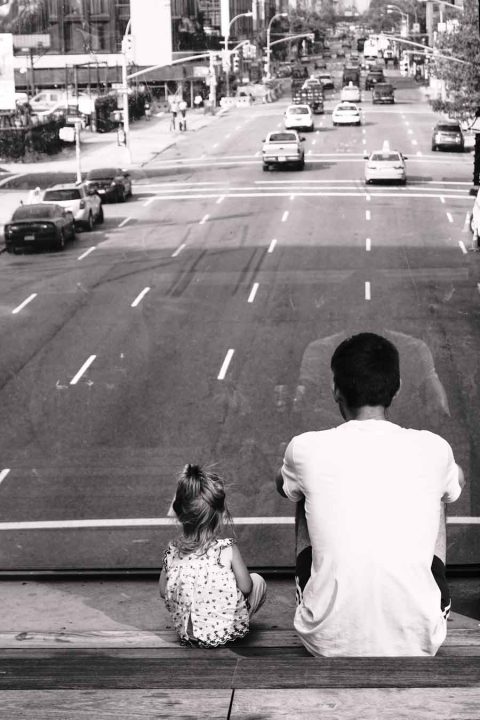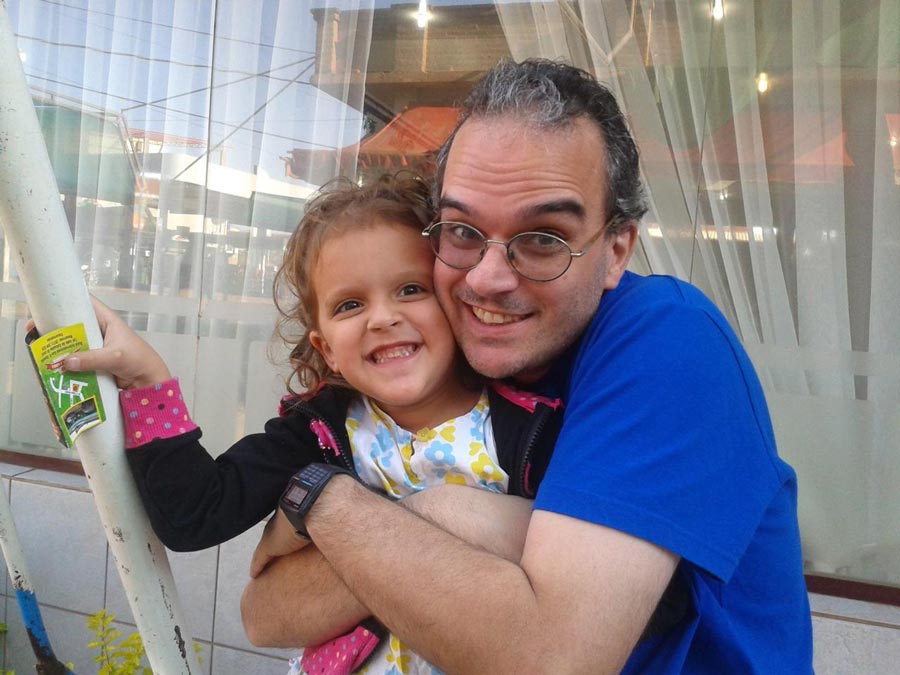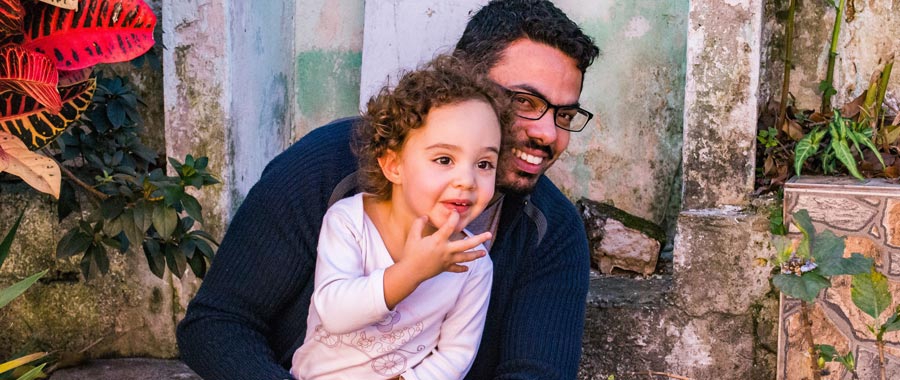The views expressed in our content reflect individual perspectives and do not represent the authoritative views of the Baha'i Faith.
I remember hanging out with a friend in Oregon that I had recently met who was about 10 years older than me. We’d hung out several times at community events with entire families. One day he mentioned that he had children. I was surprised, but surely enough, the children had been running around all the time! I just hadn’t seen them.
As a young, single man, children were often invisible to me. I just paid them no attention. Frankly, my idea of fatherhood was always very abstract. I had thoughts like, “I want to have two kids, maybe a girl and a boy,” but that is pretty much all I can recall thinking of kids before becoming a father.
Needless to say, I don’t think I was prepared for fatherhood. I trusted that my wife would be able to handle parenting. Not only did she have more experience with taking care of children, since many girls are encouraged to explore that side of life and receive many opportunities to develop skills to care for others, especially children, she had also worked in a daycare, which is like parenting bootcamp!

But during my first day as a father, I held a baby — my baby — for the first time as doctors fought to keep her mother alive due to birth complications. I realized that maybe I’d be left alone in the world with this baby. She looked at me and stuck out her tongue, and I thought about how unprepared I was to deal with this.
The baby’s diaper needed changing, and I was more than ready to watch and learn from the nurse. But the nurse turned to me and said, “You must do it.” And so I changed my first diaper.
I later learned that this is in stark contrast to the experience many other men have. When a friend of mine changed his new son’s diaper at the hospital, the nurse turned to him and angrily said, “You did it all wrong!” and impatiently redid it. Such negative reinforcement told him to “stay in his lane” and not go beyond what society says men and women should do.
I have friends who were similarly discouraged by their wives, and I’ve known men who weren’t even trusted to watch their own kids. Even once I had spent several months taking care of my daughter, often on my own while my wife went to school, older women would come up to me and imply that I didn’t know what I was doing. They sometimes implied that I would eventually try to weasel out of my responsibilities because I was a man. I guess they acted that way because that was probably their life experience. They didn’t have a husband or father who was involved in the child-rearing, and therefore they had low expectations.

Sexism has, of course, limited women in achieving many material things like equal education, equal pay, equal say in the affairs of society, and much more. But it has also deprived men of basic human spiritual skills, such as being able to care for somebody else, change their diapers, bathe them, brush their teeth, etc. While women have been taught lessons of detachment, caring for and nurturing others, men are often raised to be egotistical. We hold women back when, in some of the most important ways, they’ve surpassed us.
The Baha’i Writings talk about how gender inequality has not only held back women, it has also kept men from reaching their spiritual potential: “Women have equal rights with men upon earth; in religion and society they are a very important element. As long as women are prevented from attaining their highest possibilities, so long will men be unable to achieve the greatness which might be theirs.”
Even though I was raised in a peace-loving family, and I believed in the oneness of humanity and promoted the equality of the sexes, I grew up thinking that it was important to know how to defend myself physically from other boys. I believe that even today, the world raises men to go to war — not to nurture. And I lament that male education rarely prepares men for what is often their most important job: to be a good father and husband.
As Abdu’l-Baha, the son of Baha’u’llah, the prophet and founder of the Baha’i Faith said: “The world in the past has been ruled by force, and man has dominated over woman… But the balance is already shifting; force is losing its dominance, and mental alertness, intuition, and the spiritual qualities of love and service, in which woman is strong, are gaining ascendancy. Hence the new age will be an age less masculine and more permeated with the feminine ideals, or, to speak more exactly, will be an age in which the masculine and feminine elements of civilization will be more evenly balanced.”
I was lucky. I had a smart wife who, rather than discouraging me, was willing to accompany me in being a good father. The nurse at the hospital was similarly supportive, from that first diaper through the even scarier task of giving the baby her first bath.
Life changed entirely at that point. While before it had been about us enjoying each other’s company and our new life as a married couple, now it became all about this baby. The baby was fussy, and it was tough to get her to sleep or get her to stop crying. It was a draining experience that now consumed our thoughts.
But the magic of fatherhood was seeing that light in the child — seeing that baby smile or move. Viewing videos that we took of that time, I’m impressed about how excited we’d get about any little movement or expression she’d make. As young parents, there was a lot we didn’t know how to do. We were still in college, taking classes and trying to keep up, but the happiness was complete.
The memory of the first child was such a strong feeling that a decade later I convinced my wife to have a second child after we visited her cousin and spent time with her cute nine-month-old baby. The impulse to relive those memories brought us another cute one whose toddler expressions changed the very way we speak because (much to her annoyance today, a decade later), I constantly repeat them. I went from being a person that didn’t see children to one that yearned to have them.
I now saw the world as it really is. Society’s purpose is to raise kids. Sometimes, I hear of people complain when kids make noise on the bus or on the plane. They say, “Tell your kid to be quiet!” Many are totally intolerant of children and think it’s their right to be that way.
I now see that as a form of societal discrimination we have against the small ones in society, which illustrates our failure to understand society’s true purpose: to build a new civilization. Being a father taught me that the world isn’t just there for me to do my own thing and enjoy my life without consideration for the rest of the world. It has taught me now twice that boys are better served if given opportunities to learn how to care for others. I had to learn these lessons on the fly, but I was fortunate that in spite of time lost, I was able to find a way.
I imagine a future when boys can build these skills from a young age and learn to show love through serving their friends, their wives, their children, and ultimately society as a whole. Then, rather than being consumed by regard for our own wellbeing, we will shine resplendently by serving others. We can become the embodiments of Baha’u’llah’s words: “Thou art even as a finely tempered sword concealed in the darkness of its sheath and its value hidden from the artificer’s knowledge. Wherefore come forth from the sheath of self and desire that thy worth may be made resplendent and manifest unto all the world.”
May your experience as a father also aid you in learning to serve others.
















Comments
Sign in or create an account
Continue with Googleor